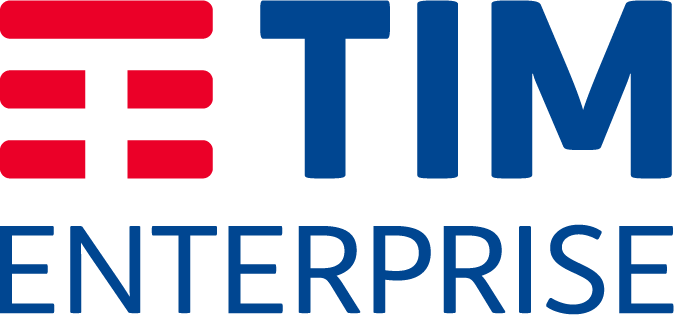Enterprise Mobility on a Soaring Trajectory
Across Europe, enterprise mobility management has become a fast-growing pillar of digital transformation. According to Grand View Research, the European enterprise mobility management market reached USD 4.6 billion in 2024 and is projected to surge at a compound annual growth rate (CAGR) of 25.1% through 2030—placing it among the most dynamic sectors in Europe’s ICT ecosystem[1]. Globally, BYOD (Bring Your Own Device) and enterprise mobility are expected to hit USD 157.3 billion by 2026, with Europe’s largest economies like Germany posting a 14.2% CAGR[4]. This explosion reflects urgent demand for seamless, secure, and scalable mobile solutions that enable remote and hybrid work, cross-border operations, and always-on enterprise connectivity.
Key Trends Reshaping Enterprise Mobility
Several critical trends are driving the next chapter of global mobility and connectivity for European enterprises:
- Remote-First and Hybrid Work Models: The pandemic catalyzed a sustained shift towards remote enablement. Enterprises now prioritize robust mobile device management (MDM) and secure virtual collaboration tools that support employees across regions and time zones.
- Advanced Security and Compliance: As mobility expands, so do cybersecurity risks. With GDPR and evolving European directives, enterprises demand unified security protocols, device encryption, and real-time threat monitoring across corporate and personal devices.
- Intelligent Roaming Solutions: Multinationals increasingly rely on advanced roaming solutions for distributed workforce mobility. FreeMove Alliance partners such as Deutsche Telekom, Orange, and Telia are innovating in seamless cross-border connectivity, offering enterprises reliable access to local networks and business-critical applications wherever needed.
- Network Resilience and 5G Adoption: Enterprise demand for ultra-reliable, low-latency mobile connections is driving accelerated 5G rollouts. In recent years, members like BT and Swisscom have prioritized 5G-enabled services to support IoT integration, edge computing, and instantaneous failover for business continuity.
- Integration of IoT and AI: Mobility in 2026 will be defined by smart device orchestration, data-driven decision-making, and automation. European companies increasingly leverage IoT fleets, AI-powered analytics, and location-based services—optimizing logistics, field operations, and supply chains on the move.
Actionable Insights: Best Practices for the Modern Enterprise
- Prioritize Interoperable Mobility Solutions: Select vendors and telecom partnerships that offer unified platforms for device management, app distribution, identity verification, and usage analytics. Ensure compatibility across multiple carriers and countries, especially when scaling rapidly or entering new European markets.
- Embed Network Resilience into Your Architecture: Leverage multi-carrier SIMs, automated network switching, and roaming agreements—capabilities championed by FreeMove Alliance partners like Odido, NOS, and Eir Evo—to guarantee uninterrupted connectivity, even in the event of primary network outages or peak traffic periods.
- Harmonize Security with Compliance: Establish robust endpoint protection, zero-trust access controls, and GDPR-aligned data policies. Deploy automated patch management and conduct regular mobility audits to address evolving threats and compliance requirements across jurisdictions.
- Champion Employee Experience: Design BYOD and mobile-first programs that prioritize usability, self-service support, and on-demand access to business-critical tools. Offer clear mobility policies and training to maximize employee adoption and productivity.
- Foster Strategic Telecom Partnerships: Collaborate with global and regional operators—such as those in the FreeMove Alliance—to tap into expertise on cross-border integration, regional regulatory compliance, and tailored service-level agreements (SLAs) for multinational workflows.
Future Outlook: The Power of Cross-Border Collaboration
The future of global enterprise mobility hinges on cross-border collaboration and innovation. Enterprise Holdings’ recent milestone—connecting over 525,000 vehicles and building a diversified mobility business across 90+ countries—illustrates the scale and ambition that European organizations are now targeting[2]. With the region commanding a 24.3% share of the global market as of 2024[1], European ICT and telecom leaders must combine reach with agility to fuel sustainable, frictionless business growth.
Strategic Reflection for CIOs, CTOs, and Telecom Procurement Leaders
The journey toward a resilient and adaptive mobile enterprise will demand bold leadership, continuous innovation, and a willingness to embrace new models of connectivity. For multinational companies, nurturing trusted alliances—such as those with the FreeMove Alliance and partners including TIM, Bridge Alliance, and others—offers a pathway to streamlined operations, regulatory confidence, and best-in-class digital agility.
As you position your organization to thrive in 2026 and beyond, consider how proactive investment in enterprise mobility can unlock new markets, protect assets, and empower your workforce. Now is the moment to engage with the wider FreeMove Alliance community: explore joint innovation, harmonize your cross-border mobility strategy, and lead your business forward in the era of truly global enterprise connectivity.







